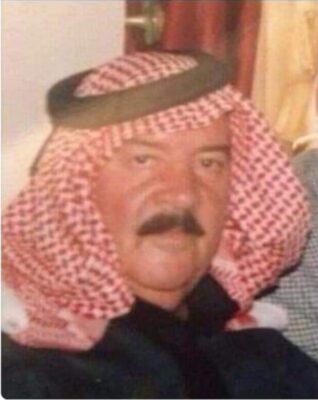Fawaz
Fawaz al-Rajab passed away last week. The news of his passing saddened me greatly, perhaps because he was directly connected to my family’s story with horses.
Fawaz was one of Syria’s very last hassanah, (in Arabic حصانة, “men of horses”). Part merchants, part experts, part brokers, part stallion handlers, but never breeders nor owners, the hassanah lived for and from the horses. They were one’s first point of contact when buying, selling or inquiring about a horse. They knew the landscape like nobody else.
Abu Hussein Khattab and Abd al-Qadir Hammami were the main hassanah of Aleppo. Uqlah al-Hanshul and Najm al-Himmayri were the main two for Deyr al-Zor. They all passed. Today, with the rise of direct advertising, social media, and specialty magazines, there is no room for the hassanah anymore. The profession is a thing of the past.
Fawaz was the main such “man of horses” for the Syrian city of Homs from the 1960s to the 2010s. He took over his father’s business. In 1976, my father, then newly engaged to my mother, made his first visit to her family in Homs. He asked his future in-laws where he could see horses around the city. My uncle took him to Fawaz. Thus began my family’s story with the horses of Syria.
In 1985, my father, who until then had only bred and owned Lebanese Arabian horses, acquired his first Syrian asil horse through Fawaz. That was a 26 year old bay mare of the Tuwayssan strain. For as far back as I can recall, whenever I was around horses in Homs or its vicinity, Fawaz was in the picture. Sometimes literally. In the car on dusty roads, inside ancient, half-crumbling, urban courtyards, in rural pastures, in Bedouin tents, in restaurants by the Orontes river, or in his own four-centuries-old house of basalt stones in the heart of the old city of Homs (now a heap of rubble), memories of Fawaz and hour-long discussions about horses intertwine. This was when I learned to listen, and where I learned the most.
I particularly recall a three hour drive on a dust road to see a single mare of the Abu ‘Arqub strain that Fawaz had said was antika, antique. That was his way of saying that a horse was of the ancient type. We drove out but the mare was nowhere to be found, and had to drive back to Homs into the night. My father was not happy.

My condolences to you, Edouard, and to Fawaz’s family.
My condolences to you and Farwas’ family, as well. The ending of an era …
I am so sorry. It is such a loss to lose a mentor, and he sounds like he was, for many, including you and your father, and through you, all of us.
He was more like a door opener and a “fixer”.
Very sorry for your loss.
I am smiling at the anecdote of Fawaz taking you and your father on what amounted to a wild goose chase for a horse that wasn’t there. A special man indeed.
It is interesting to learn that ‘Hassanah’ is a profession; I believe I have seen it before as a name. Would it possibly be related to the world ‘Hosanna’? They seem to have similar root meanings from a very cursory Google search.
it’s related to ‘Hisan’ which means horse; so, a “horser”